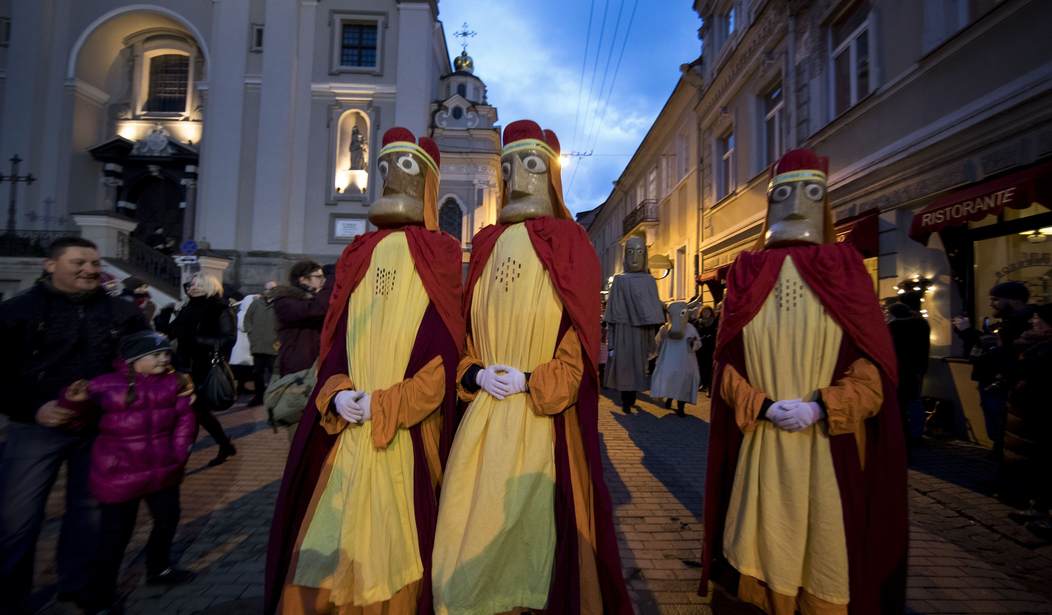It is virtually impossible to understand America in 2019 without taking into consideration the huge shifts of paradigm that came about during the 1960s. Monday’s passing of Richard Alpert, aka Baba Ram Dass — New Age philosophizer and sometimes LSD proselytizer — is a sad reminder of 1960s idealism that promised to change the world, but only really damaged it.
Ram Dass himself admitted that hundreds of LSD trips, pilgrimages to India, periods of celebrity, and thousands of sexual liaisons had left him, at the end of life, depressed and searching.
A big part of the 1960s worldview (as it related to social reform and world improvement, at least) was that old constructs had to go. Society, education, government, family structures, religion— it all needed to be deconstructed and rebuilt. Songwriters and influencers like Ram Dass pulsed out the mantra that it was time for something new. To this very moment -- among political liberals/progressives / neo-socialists / woke-ists -- this wholesale embrace of the nebulous “new” remains a zealous pursuit.
But there is a difference between “old” and “time-tested.” In 1929, influential thinker Gilbert Keith Chesterton spoke of “modern reformers” who see an old fence or gate and say, “I don’t see the use of this; let us clear it away.” Chesterton, just like wise King Solomon of old, warned that before one generation sweeps away the boundary lines drawn by their fathers, it is wise to familiarize oneself with why those parameters were built in the first place. Ram Dass and his contemporaries promised the world an enlightened utopia. The legacy of the 1960s revolutionaries has left America and Europe with varying degrees of lawlessness and much social damage to undo.
Recommended
Pop culture leaders of recent decades have promised fulfillment through everything from horoscopes to holistic medicine. It is only human to want to know the truth and find purpose. Christmas provides helpful reminders of this— and the Magi who sought out Jesus are a perfect case in point.
The early Christian writer Tertullian concluded from certain Old Testament prophecies (Psalm 72:10; Isaiah 49:7, 60:3) that the wise men must have been Eastern kings of power and wealth. Who else could undertake the trek to Jerusalem, gain an audience with Jewish and Roman leaders along the way, and be able to afford such extravagant gifts?
As for their spiritual orientation, magos? the Greek word from which magi is derived? could mean a variety of things. In the ancient world, this same root word was used to speak of a learned man, a scientist, or even a sorcerer. Indeed, beyond its appearance in Matthew 2:1-12, magi is found only two other times in the New Testament, both referring to occult activities (Acts 8:9; 13:6-12).
So what connection, if any, exists between the Magi of Matthew 2 and present-day astrology? After all, weren’t they looking for answers in the stars? Commendably, they made it all the way to Jerusalem by following the star. But they needed help to make it all the way to Jesus. Upon arriving in the holy city, they still had to ask, “Where is the one who has been born king of the Jews?” (Matthew 2:2). This company of wise men may have been practitioners of astrology, but their stated purpose in traveling so far (“We saw His star in the east and have come to worship Him”) shows that they were not just idolatrous pagans. They followed the light they had in an apparent quest to more fully experience a Deity they did not yet know.
It is touching that Jesus’ birth was made known to lowly shepherds and these non-Jews from the East. Clearly, the Christ child was to be the Savior for all people. These “Wise Men” sought the One who is Himself wisdom. They carried with them earthly treasures on their quest for the One who is the heavenly treasure. And even with a star for guidance, the Magi had far less divine enlightenment than we do.
It has been my privilege to interview many people who were personally involved in efforts to “change the world” during the 1960s and 1970s. Some of the folks I’ve met were influencers who truly made news “back in the day.” Others were just ordinary folk searching for . . . something. It makes me sad that many, like Baba Ram Dass, spent long years on quests that essentially led to nowhere. The stories I’ve heard from people of the counter-culture generations are a mix of hope, disappointment, achievement, loss, and longing. Many have plainly admitted that the ripple effects of the 1960s have been, in large measure, negative.
Perhaps this Christmas you’ll have an opportunity to take a fresh look at the manger scene. I’m sure you’ll see at least one such display. We might note that the wise men: 1) personally worshiped Jesus; 2) sacrificially followed God’s leading; and 3) took a public stand for their beliefs.
The star-gazing searchers of old did not look for a better world through astrology, drugs, or politics. The story of the Biblical Wise Men reflects genuine faith and obedience. Reflecting on their humility, devotion, and honest recognition of truth conveys faith and wisdom that can be an inspiration to us all.
Alex McFarland hosts “Exploring the Word,” hear daily on the American Family Radio Network. He is author of many books on apologetics, worldview, religion and culture. www.alexmcfarland.com

























Join the conversation as a VIP Member